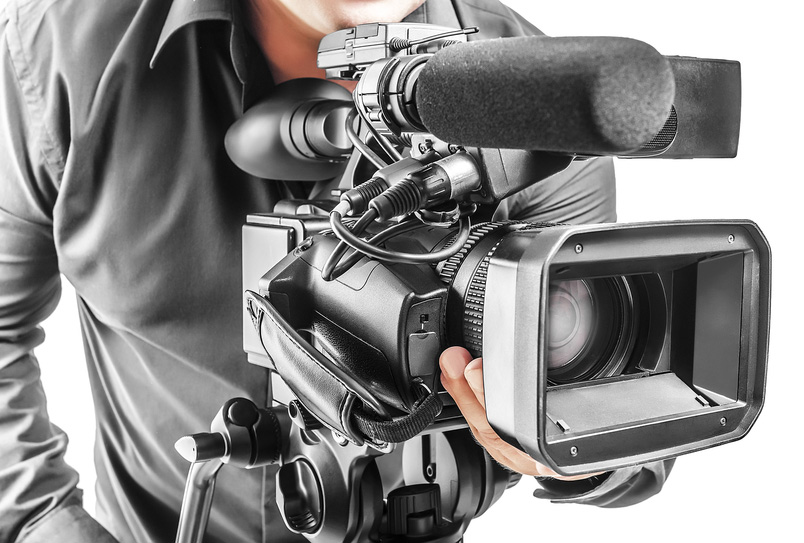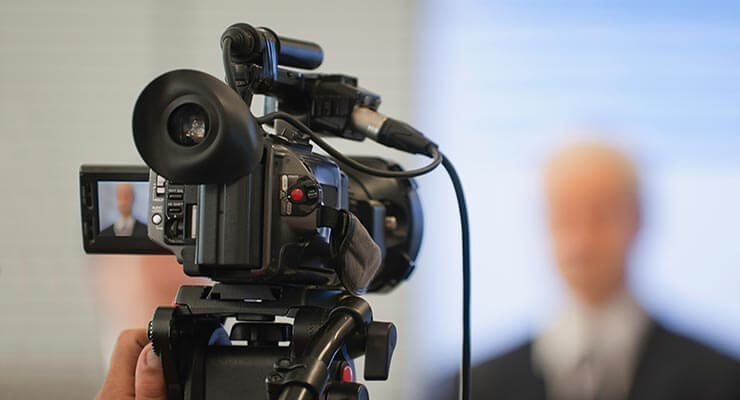Flexible Legal Videography for Your Legal Needs.
Flexible Legal Videography for Your Legal Needs.
Blog Article
The Role of Legal Videography in Depositions and Tests
Legal videography has arised as a necessary device in both depositions and tests, offering a multifaceted method to recording witness testaments. As legal specialists increasingly recognize its value, it prompts a deeper evaluation of exactly how these visual records can affect juror assumptions and trial results.

Importance of Lawful Videography
Legal videography plays a pivotal role in the documents and discussion of depositions and trials. This specialized area combines technological abilities with lawful knowledge to create a reputable record of procedures that can dramatically affect instance end results. The aesthetic aspect of lawful videography boosts the understanding of witness statement, permitting jurors and courts to observe not just the spoken words yet likewise the demeanor, feelings, and body language of the witnesses.
On top of that, lawful videography offers an unbiased account of events, reducing the potential for misconception that can accompany written records alone. This visual documents acts as a vital tool during trial presentations, promoting a clearer and more influential story for both complainants and accuseds. Additionally, the capacity to replay video clip sectors throughout court process enables lawful groups to highlight bottom lines, strengthening their disagreements effectively.
The relevance of legal videography extends beyond the court room; it also plays an important duty in maintaining proof for future reference, whether for charms or further lawsuit. Its assimilation into the lawful process is important for ensuring a fair and accurate representation of the truths, ultimately adding to the search of justice.

Process of Legal Videography
While recording the subtleties of depositions and tests, the process of lawful videography includes several vital actions that guarantee high-quality, precise recordings. A specialist legal videographer prepares by reviewing the situation materials and comprehending the particular requirements of the deposition or trial. This prep work consists of familiarizing themselves with the individuals and the context, which aids in catching relevant information.
On the day of the recording, the videographer establishes up the required tools, which usually consists of high-def video cameras, microphones, and proper lighting. Making sure optimum angles and sound quality is crucial, as it directly impacts the efficiency of the recording. The videographer interacts with lawyers and individuals to develop protocols, guaranteeing that everyone understands the recording process.
During the deposition or test, the videographer diligently tapes the proceedings, paying close interest to both verbal and non-verbal hints. This includes catching the demeanor and reactions of witnesses and attorneys. After the session concludes, the videographer may edit the video footage for quality and compliance with legal requirements, generating an end product that accurately reflects the procedures for future reference and use in legal contexts.
Benefits in Depositions
The incorporation of videography in depositions offers countless benefits that enhance the total process of gathering evidence. One main benefit is the capability to record witness testimonies with aesthetic and acoustic fidelity, giving a more accurate depiction of the witness's temperament, tone, and body movement. This multidimensional method allows lawyers and juries to analyze integrity better than conventional written transcripts alone.
Additionally, videographed depositions function as an effective device for protecting testimony. Should a witness come to check it out be unavailable for test, their tape-recorded deposition can be played in court, guaranteeing that their evidence stays easily accessible and pertinent. This facet considerably minimizes the risk of shedding essential details that might influence case results.

Finally, videography improves the general professionalism and trust of the deposition process, instilling confidence in clients concerning the thoroughness of their legal depiction (legal videography). By leveraging innovation, attorneys can substantially improve the performance of depositions
Effect On Tests
In several tests, the assimilation of like it videography can significantly affect the discussion of evidence and the jury's perception. Lawful videography catches witness testaments and critical evidence in a dynamic format, enabling jurors to engage with the material on numerous degrees. This visual element improves the storytelling facet of a test, supplying context and emotional vibration that standard text-based proof might do not have.
Moreover, video recordings can function as powerful tools for impeachment throughout interrogation. When inconsistencies arise between a witness's previous declarations and their court room statement, video clip proof supplies an objective recommendation that can persuade jurors' viewpoints. This immediacy and clarity can strengthen the trustworthiness of an event's story while concurrently undermining opposing debates.

Future Trends in Legal Videography
As we look toward the future of lawful videography, numerous arising patterns promise to reshape its duty within the court. One considerable trend is the integration of artificial knowledge (AI) in video clip analysis and editing. AI can streamline the procedure of determining crucial moments in taped depositions, permitting lawyers to rapidly access relevant material, therefore enhancing efficiency in case preparation.
Furthermore, the increase of digital truth (VR) and boosted fact (AR) modern technologies is expected to change exactly how jurors experience evidence. legal videography. By submersing jurors in a simulated setting, these technologies can provide a much more profound understanding of complex situations, causing more informed deliberations
In addition, the increasing need for remote depositions, sped up by the COVID-19 pandemic, will likely continue. Legal videographers will certainly need to adjust to brand-new software application and systems to guarantee top quality recordings in digital setups.
Lastly, the growing focus on information security will certainly require stricter procedures for saving and sharing video evidence. As find here the legal landscape develops, lawful videographers must stay abreast of these patterns to keep their relevance and efficiency in the judicial procedure.
Verdict
In recap, legal videography serves an important function in the judicial process, enhancing the integrity of depositions and tests. As modern technology proceeds to progress, lawful videography is poised to further transform its duty within the lawful landscape.
Report this page